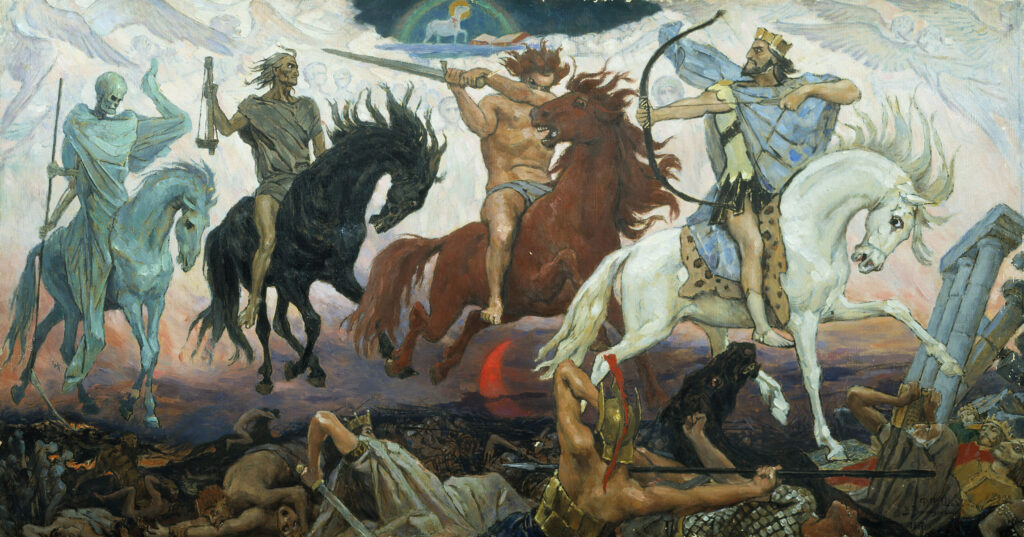When most people hear the word “apocalypse” they may think the end of the world, fire and brimstone, plagues, warfare and all kinds of destruction. But the word, which is Greek, actually means to pull back or reveal. The beauty of sport and competition is that for many of us, it is a place where apocalypse happens, self-revelation takes place on the court, the field, or gymnasium. In fact, the ancient Greeks, men like Socrates would go to the gymnasium to exercise and engage in philosophy, a kind of working out for both the body and the mind. There was an obvious connection between training one’s body and one’s mind, and while philosophy helps one pursue truth, exercise is often the pursuit of truth about oneself and our own limits.
It is when we are at the end of our rope, physically drained, emotionally invested in the game, that we find a unique and valuable experience to discover more of who we are. Sport gives wonderful, if not at times frustrating feedback about ourselves. We may think we are capable of running a certain time, making a critical basket or believe we can make a putt with the game on the line, but then the moment comes, and we either do or don’t. And in that moment, we discover if we really are that kind of person or not. Professor Heather Reid says this, “a real self emerges from real tests with real criteria for success and failure. I may imagine myself as a perfect free-throw shooter, I may even have the kind of statistics that make my success at this moment highly probable. Ultimately, however, my social image, my statistics, my race, my gender, my hours of practice, my perfectly-timed ritual cannot shoot the ball for me. I have to shoot it, alone—and in this moment I learn important things about myself that cannot be hidden, imagined, or faked.”
Now that doesn’t mean that athletes never try to explain away their misses or make excuses for falling short. For some, the truth is too harsh, it would damage the ego too significantly so we shift blame to teammates, refs, the crowd, just about anyone else, but that is their loss. They lose because it is hard work to come by insight into who we are as people and shifting blame, or ignoring the potential of the insight is a wasted chance for growth. This is the reasoning behind the ancient practice of competing naked. The Greek’s saw sport as a laying of the person bare physically and spiritually vulnerable before the gods to show who they really are.
There are so many opportunities in our day-to-day world to distract us from self-discovery, but sport is a place that we can confront and learn from our limitations as people. It is a place where truth is discovered and hopefully, we have the support of coaches and teammates who will spur us on to become better. That too is rare, for as much as we may say we have friends in this world, how many friends do you have in your life who are willing to be honest with you and help you grow? That is the basis for any team, a group of people with a common goal, working to help one another achieve that goal and improve themselves.
That being said, at the end of the day, just as with good philosophy, good athletes must choose to accept their role. They cannot cede their choice and responsibility to others, or rituals, they must shoot the ball, the individual is alone in their moment and are therefore fully responsible for their attitude and effort. This holds as true for individual sports like wrestling, or boxing as it does for team sports like basketball and football. In life even when there are circumstances outside of our control, we are still left with a choice of how we will proceed, how will we choose to act within the sphere of control we do have? It can be tempting in challenging moments to look at what is outside of our control and focus on what has happened or lament over what we cannot do anything about. But that is a choice, just as the team down by what seems like an impossible deficit can choose to ease up, to not play as hard because victory doesn’t seem possible. Conversely, we can choose to continue doing the right thing in the moment, in the next play because that is still the good thing to do, regardless of the outcome. It is also likely the best chance of surmounting a comeback if one is to happen. And sport is a great place to practice challenging situations, to discover how do you respond to adversity in an environment that isn’t truly life and death, even if, for the die-hard fans out there it may feel that way.
If you’re not someone who enjoys sports perhaps this has helped you see the virtue in sport and competition. And whether you play sports or not, you can still take a philosophical approach to challenges in life, looking at these as opportunities for self-discovery, taking ownership over your choices, and the cultivation of virtues in your own life.
